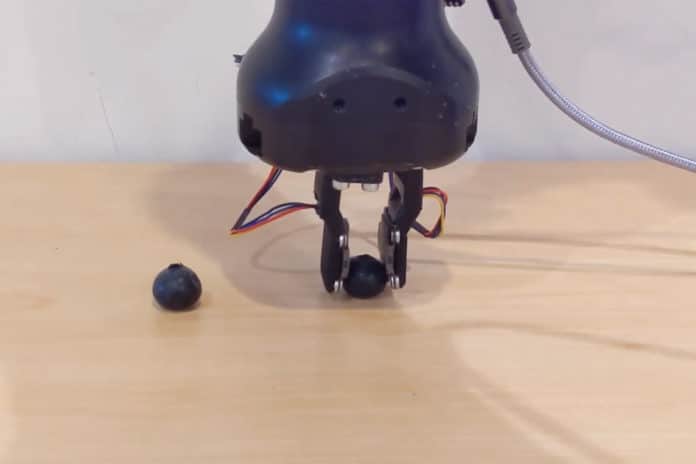AI today effectively incorporates senses like vision and sound, but the sense of touch still remains a challenge for artificial intelligence and robotics researchers.
Meta AI (formerly Facebook AI) researchers hope to change that through a new tactile sensing skin they believe will increase the sense of touch in robotics, wearables, smart clothing, and AI. Developed in collaboration with Carnegie Mellon University, the new open-source touch-sensing “skin,” called ReSkin, can help researchers advance their AI’s tactile-sensing skills quickly and at scale.
The technology is affordable, durable, and easy to use. It harnesses advances in machine learning, soft robotics, and magnetic sensing to create a skin that is versatile and as easy to apply as a bandage.
ReSkin costs less than $600 for 100 units and even less for larger quantities. It is 2-3 mm thick and can be used for more than 50,000 interactions without needing to be replaced. It also has a high temporal resolution of up to 400Hz and a spatial resolution of 1 mm with 90% accuracy. Its sensors can detect slipping, throwing, catching, and clapping. When it wears out, it can be easily stripped off and replaced.
All these specifications make the tactile sensing skin ideal for form factors as varied as robot hands, tactile gloves, arm sleeves, and even dog shoes, all of which can help researchers collect tactile data for new AI models that would previously have been difficult or impossible to gather.
ReSkin is a deformable elastomer with embedded magnetic particles. When it deforms in any way, the spacing between the magnetic particles changes, which in turn causes the material’s magnetic field to change. We can measure these changes with nearby magnetometers and use data-driven techniques to translate this data into information such as contact location and amount of applied force.
ReSkin can easily be replaced because there are no wires between the skin and the sensing board. Researchers developed AI methods that contribute to its ease of use. These methods enable the sensors to auto-calibrate and allow the data to remain consistent even when the skin is replaced. ReSkin requires no hardware or software changes between sensor skins.
Facebook AI hopes improvements in touch unlock possibilities in augmented and virtual reality and lead to innovations in industrial, medical, and agricultural robotics.
